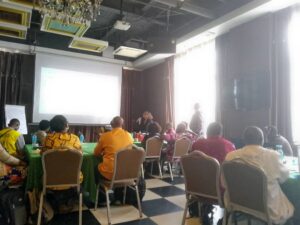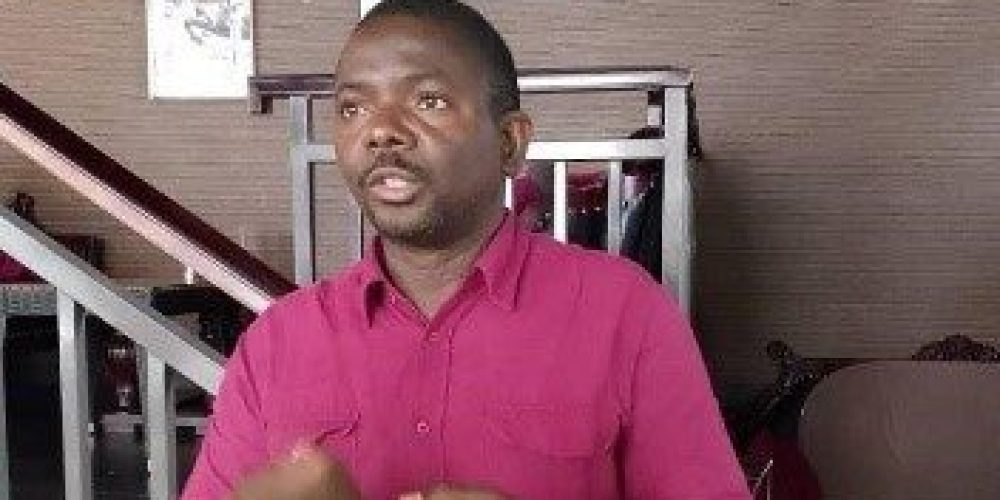By Millicent Senava Mannah

The Social Science in Humanitarian Action Platform that supports the emergency response in ways that really respond to the real needs of communities, with support from the UK Foreign, Commonwealth and the University of Juba, has commenced a two-day Research Workshop on improving country-wide vaccination strategies on the 14th & 15th August, 2024. This is geared towards presenting social science brief to support the malaria vaccine roll out in the country. This auspicious event was held at the Atlantic Lumley Hotel, on Beach Road, Aberdeen in Freetown.
This event brought together health care workers from five districts including the Western Area Urban and Rural, institutions working on vaccine intervention to discuss and see how to have an efficient vaccination in the country.
This will enable UNICEF and health system stakeholders including the Expanded Program on Immunization, the Directorate of Primary Health care, and the District Health Management Teams to plan inclusive and equitable vaccine programming.
It is important to note that, vaccines are very essential as they help to build the immune system of children for them to be able to fight against diseases, grow well, and grow very healthy, so that is why it is really important for parents and communities to prioritize vaccination.
Abu Conteh, Senior Researcher, Sierra Leone Urban Research Centre, said they have introduced the malaria vaccine for children, and that it is still ongoing. According to him, the evidence they provided is to support UNICEF and the Ministry of Health in trying to really have an effective roll out, by trying to understand the social, cultural, political barriers to vaccination in the country.
He maintained that the discussion or workshop is for how they can really advance their understanding of vaccination and how they can have an effective roll out.
“Some of the challenges we discovered vaccinating local people can be looked at from different categories; one is the health system factor, for example the fact that there are limited resources, health care workers face challenges in terms of really trying to roll out vaccines in difficult areas.” Abu Conteh stated.
He continued that there are also challenges in terms of social and religious factors which really shape people’s beliefs about not wanting to take vaccines. Further stating that, there are also challenges in terms of people considering vaccines as not effective or harmful to them either because of previous experience with other previous vaccination, or maybe health care experience generally, or because of rumors.
Conteh revealed that there are positives dating back from the Ebola period. According to him, when there was Ebola in the country, there were lots of back lash in terms of people accepting the Government’s response to Ebola, even with the vaccination of COVID-19 people did not want to take it.
He said it was through community engagement with stakeholders they were able to build trust and then the fact that some community members like chiefs take the vaccine in the presence of their subjects, they were able to improve the confidence of the people to take the vaccine.
This brief draws on evidence from academic and literature, proposing key considerations for ongoing vaccination efforts-including hepatitis vaccine and the new malaria vaccine.
It offers insights on how best to address these considerations when planning equitable vaccine campaigns for new infections.
The Social Science in Humanitarian Action Platform is a partnership between the Institute of Development Studies (IDS), Anthrologica, Sierra Leone Urban Research Centre, CRCF Senegal, Lulu University, amongst others.





